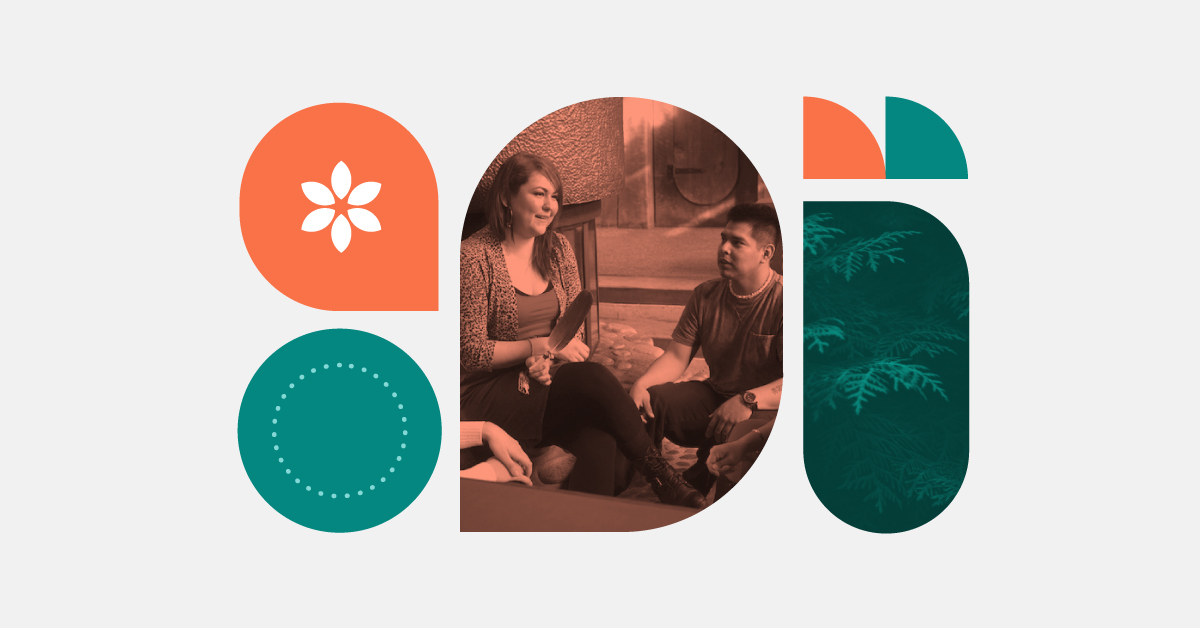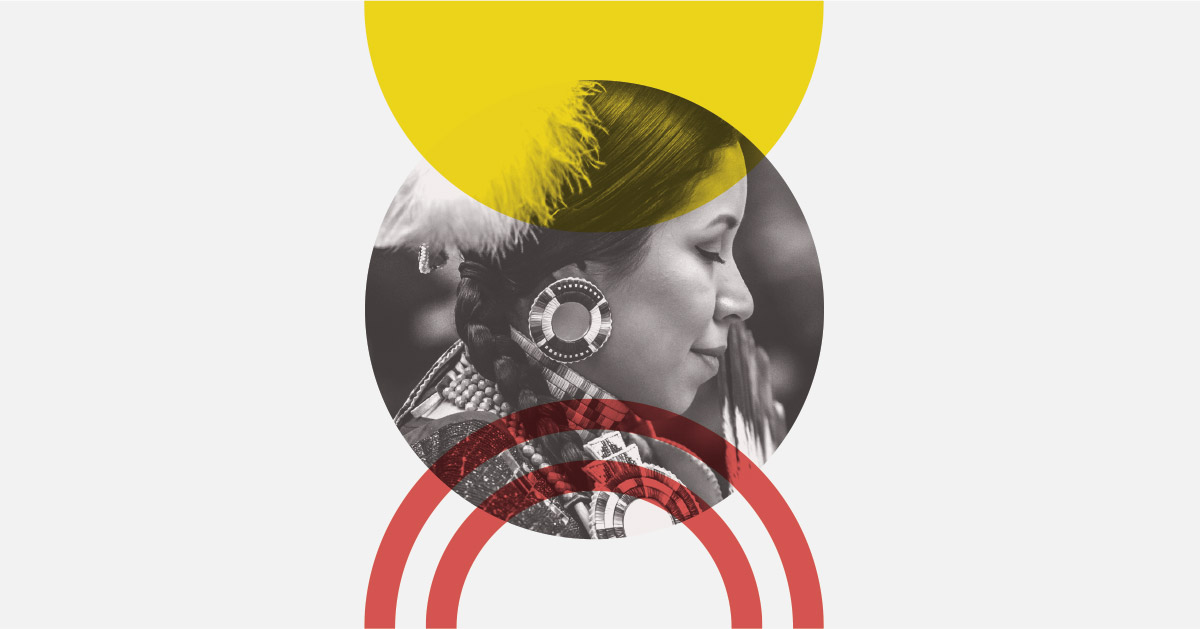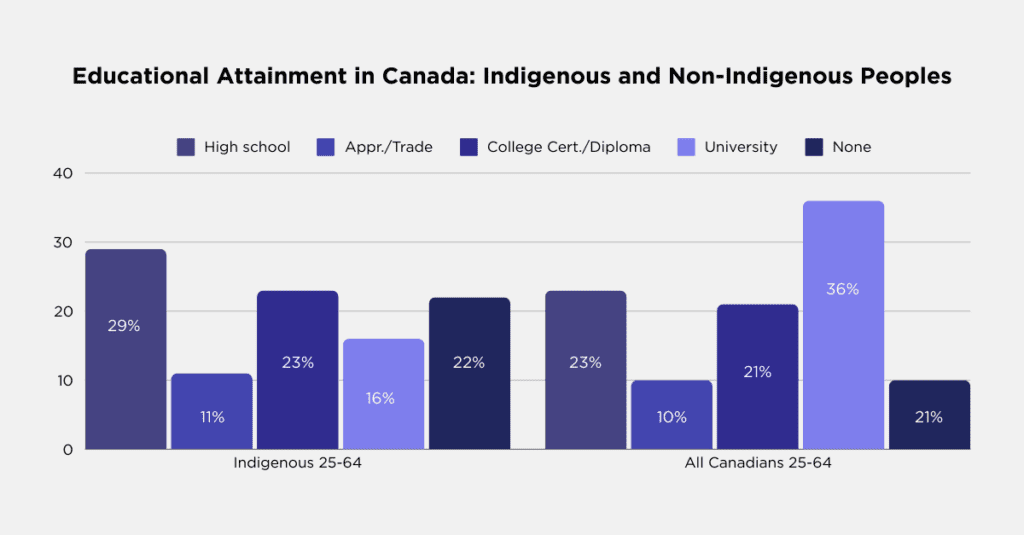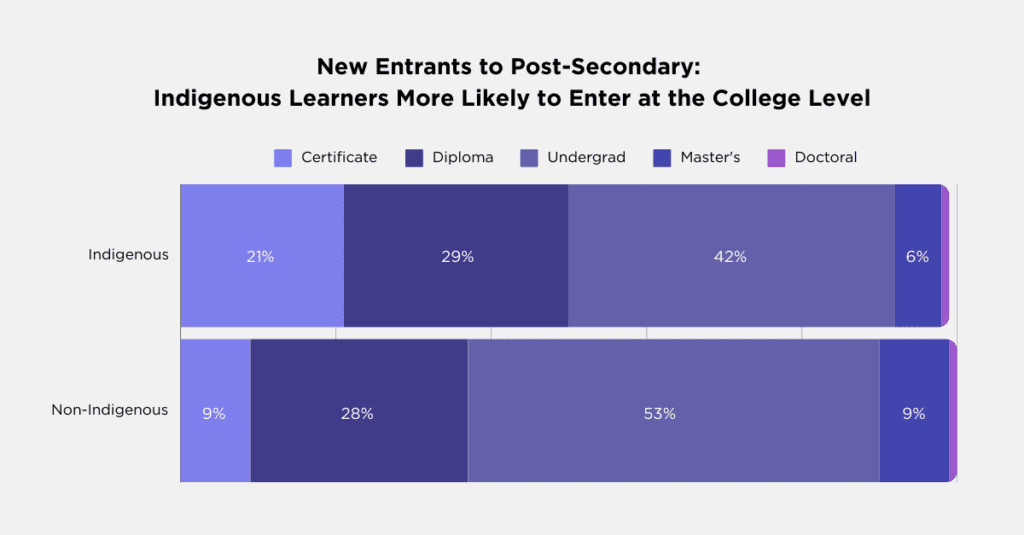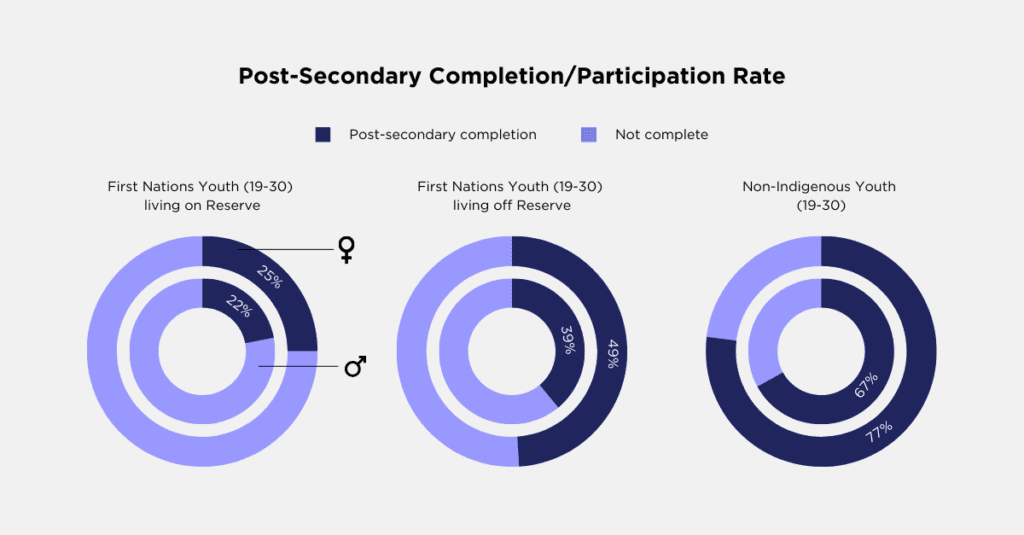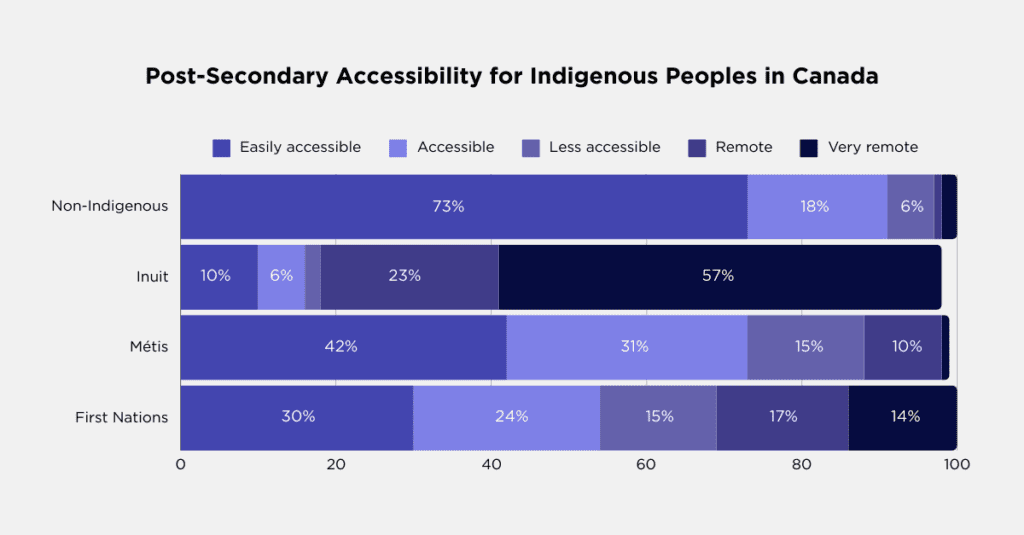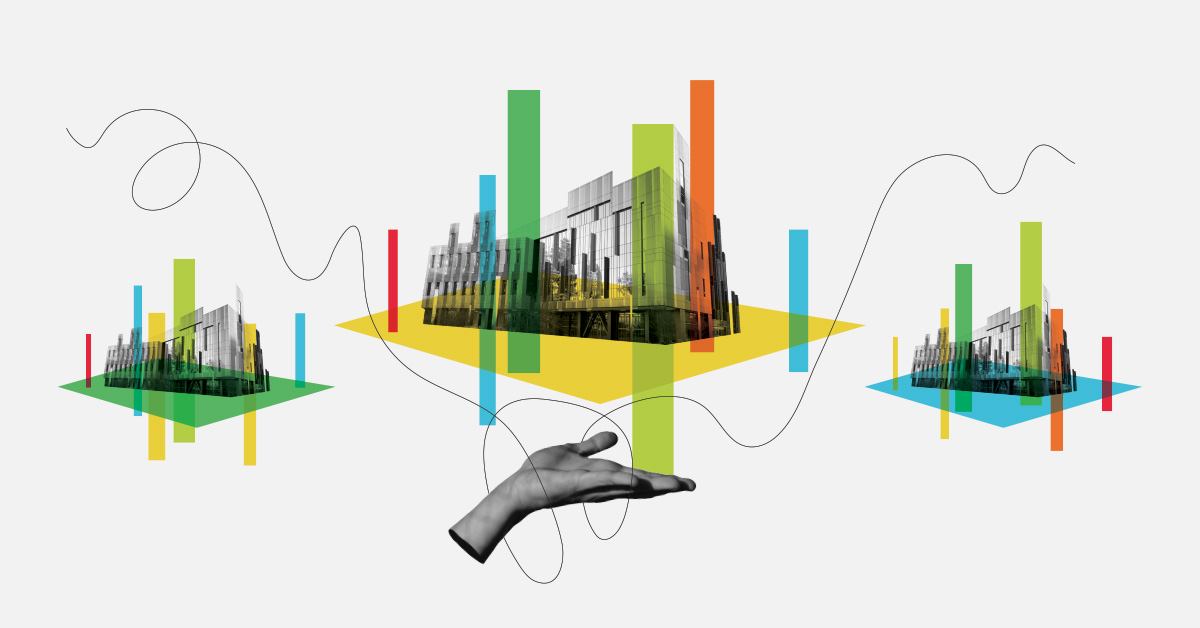Amélie Cantin:
Hi everyone.
Welcome! I’m Amélie Cantin of Colleges and Institutes Canada, the country’s largest post-secondary education network. CICan – as we call ourselves for short – advocates, builds capacity and drives knowledge to strengthen Canada’s publicly supported colleges, institutes, CEGEPs, and polytechnics. Today’s podcast is a special one.
We have the distinct privilege of sitting down with our very own President and CEO Denise Amyot, who, after more than a decade with CICan, announced her decision earlier this year to depart the organization for what she is calling a non-retirement. Denise is a remarkable individual who has played a pivotal role in the journey of CICan. She was appointed the organization’s seventh and first female president and CEO in 2013. Since then, the organization has benefited dramatically from her extensive knowledge and expertise gained through a distinguished career in the not-for-profit and public sectors.
Under her leadership, CICan has grown significantly. We have tripled in size and secured a national and international project portfolio of nearly $500 million. The organization was also recently named one of the National Capital Region’s Top Employers, recognizing Denise’s unwavering commitment to creating a safe, inclusive and welcoming work environment that meets the unique needs of the organization’s diverse workforce.
Today, we’ll be diving deep into her memories, milestones, and achievements, allowing her to share her thoughts and sentiments on a more personal level.
So, without further ado, I’d like to welcome Denise Amyot, current President and CEO of CICan. Welcome Denise.
First things. First, Denise, you’ve mentioned several times that this isn’t exactly a retirement, but rather a non-retirement. Tell us, what does that mean?
Denise Amyot:
Maybe it’s because I don’t believe in in retirement perse, but I intend to stay active. With first board responsibilities. For me, it’s important to give back.
I will pursue my love of coaching. I will continue to learn languages, like right now I’m learning Arabic. It’s a huge challenge that will take me seven years and a half and I’ve done 14 months, so I still have a way to go. And for me, I’m very attached to the whole question of ESG – the environment social and environment impact of the organization, so this is something I intend to do. For sure, I am not seeking full-time employment.
You know, I’ve been working full time for 46.5 years, in demanding roles, and it’s time now to lift the anchor and open my sails and see where the wind brings me. There will be my family for sure, leisure, sports etc is important for me, and as I’ve said, continue to give back.
Amélie Cantin:
It’s such a great visual – the boat and the wind in going sailing and seeing where the adventure brings you, and it’s well deserved. Now, let’s talk about your current transition. As you mentioned, you’ve had an extensive and highly successful career working in demanding roles. It’s clear to those who know you well that slowing down is against your natural instinct. How would you describe your current emotions and thoughts on this transition?
Denise Amyot:
Stepping down as the President of CICan has been the hardest decision of my life. I love what I do. I love my team. I love our members. And, I find that our members make such a difference in the lives of students and their communities. It’s very inspiring. That’s why it’s hard to leave because I feel like with our members, we all continue to grow. We learn all the time. At one time, I asked my husband, “Do you think I’ll continue to learn if I’m still not at CICan?”. He laughed because he knows me well and said, “Yes, of course you will”.
I leave knowing that this network has never been stronger. We are more inclusive; we are more collaborative, and more sustainable than ever before. There is still a long way to go. There are still things to improve, either from an equity or a sustainability perspective, but I’m confident in the future. What I love about CICan is that our impact is felt in the communities, but it’s also felt around the world. I had the privilege to observe the changes that we have ushered in with respect to women and with respect to what we do for sustainability and the planet, what we’ve done in terms of breaking down barriers for women, what we’ve done in applied research, and what we’ve done with skills. This is just amazing. It’s something that continues to grow. It’s almost like a snowball, and you continue to roll it and roll it, and it continues to grow and adapt to what is happening. That’s what I love most about colleges. It’s how it adapts and morphs when it needs to. That’s what’s so exciting to be at CICan and what makes it so difficult to leave. I always think about whether I will be able to find something as fulfilling.
Amélie Cantin:
Let’s continue in this vein and reminisce about your time with us. Can you share a specific moment or achievement during your tenure at CICan that holds a special place in your heart, and why is it so memorable for you?
Denise Amyot:
I have to say the special place is when I see my team grow and when I see them changing roles and grow and bloom like flowers. That’s memorable for me. Other moments, of course – Covid. Covid was extremely demanding for all of us, but when it hit, I felt we had a choice. We had a choice of either being victim and wait and see what the world would do or to seize the opportunity that COVID was offering. And that was our call. Our responsibility was to seize opportunities and help and support individuals, our members, or our own staff. I would not have wanted not to be at work during that period because I’m sure ten years from now, we’ll reflect. For example, I remember I often talked to retired friends, and I felt privileged to be at work during that time and make a difference. So that was special. The other thing was the pension plan for the staff because when I arrived, I arrived from a job with a pension plan.
When I was young, I remember that for my father, it was very important that I be in a place with a pension plan. He would often come back to it and say how privileged people with a pension plan were. And when I arrived here, I realized CICan is like an enterprise. It’s an organization in full fledge. And at the end of the day, it’s up to you to do whatever with the organization to make it better. And so, I felt let’s have a pension plan, and everywhere we tried, they said we were too small, and there was no interest in taking us on. So, when we finally found the organization we have right now, CAAT, it was like, “wow, yes we have it!”. This is memorable as it’s a legacy that I’m leaving that will serve the organization forever.
And, of course, I can talk about the different accords or protocols that we developed and the way we worked to stimulate, not stimulate, but to inspire our members to sign them so that it would become part of their own organizations, like the Indigenous education protocol. I naively thought it would take a couple of months, and then, you know, we would ask members to assign it. It took 2 years, but you know, in retrospect, I know why now it took so long to do that because every word was important. and we needed to ensure that every member could live with what we were aspiring to, and even though this is an aspirational goal, it’s something that we needed to make sure that everybody was okay and the best news for me, or the best achievement was when you look at the seven lines of the protocol that took two years is to look at how close it is to the five recommendations of the report of the Truth and Reconciliation Commission. Because there are recommendations that are specific to education and it’s almost word for word. And so that explains why it took two years because there was a journey, but our protocol came out 6 months before the report. And so, I’m really, really pleased of that. I’m pleased that 74 of our members have voluntarily signed it.
And then, of course, during Covid, this report came out on the SDGS about Canada’s performance or Canada’s non-performance. And I felt we had a responsibility as an organization because we are in many places in the country. You know, you all know about the map and the geolocations of our members. Ninety-five per cent of Canadians, or within 50 kilometres of one of our campuses, and I felt who can better address the SDGs than us, considering where we are. Considering the work we do with communities, many of our members have embraced the SDG Accord. We can now look at the contribution and how we’re making communities better, the country better, and the planet better. And now that we have the SDG incorporated into everything we do, it is extremely important.
Linked to that, there is this challenge that the Government put out. I remember being at home when I discovered the 50-30 challenge. I said, Oh, my God! You know we can be a champion of that 50, 30 challenge because it’s who we are. It’s what we are all about. So, I felt we were not entirely there because we were short when signing it. I remember off like a leg and an arm to meet the 50-30, but I felt this was part of our DNA. So those are the things that have a special place, you know. It’s not one thing. It’s many things. It was ten years and a half. So, there’s a lot in that.
Amélie Cantin:
Definitely. And if I may be so bold, Denise, I’m going to say your legacy is one of positive transformations. So, thank you for your perseverance and your dedication to not only you, the sector, but your staff. I really love how you talked about your father with the pension plan. It is like we are a family at CICan, and you take care of your family. So, thank you for that.
Now, let’s look back again on your time at CICan. What do you believe has been the most significant change or transformation? I know this is a hard one that has taken place within the organization or the sector as a whole.
Denise Amyot:
I told you I treated this like an enterprise where I had the choice, either this status quo or make it grow and seize opportunities. One of the significant changes has been to grow our organization to allow our staff to grow in different positions and in different types of work. Now, you can have a career within CICan. That was the beauty of when I worked in the Federal Government also because, you know, you could go in different departments, and there was always something to learn, and CICan now has different streams – steams that allow staff to go from international to domestic or from the government relations front to programs, and there are different types of programs as well. It makes it very attractive to members because it increases our offering to them, and at the same time, it’s good for our staff for their growth. And so, if I look at, and if I just look at our diversity within our organization, it’s now, I think, close to 50% coming from different equity groups. This is important for me because it’s important that we represent who we serve from a member perspective and a student perspective.
If I look at this sector now, so many things have changed in 10 years and a half. I look at sustainability; sustainability now plays a bigger role compared to where it was. And now students expect that. Students want to work, not to work, but to study in a place that cares about the environment. They want programs that teach them about how to care for their planet.
I will never forget when Judy developed a six stream to the UNESCO sustainability framework in professional and technical education and training. There are five streams in the UNESCO framework. You know from applied research what you do with the community, the curriculum, and what you do also with respect to engagement. And we helped to support UNESCO with that because initially, applied research needed to be there. But Judy and the team of impact climate added a sixth element. And I say this because they put it almost as an umbrella. And it’s the Indigenous ways. And for us in Canada, this is so critical to who we are. Indigenous people had spent thousands of years before Europeans arrived, and they knew how to care for the environment. So, for us, it’s very important to include them. And I’ve seen way more attention and acknowledgment of the importance of Indigenous education in the ten years and a half. Before, it was specific institutions, or more in certain provinces than others, but now you can see it. There’s a movement – not only towards knowledge but also towards reconciliation. Again, there is a lot of work to continue, but we are further. It’s like the trees. It’s evergreen. We will always build on the past, learn from the present, and build something better for the future.
I also must talk about applied research because it has increased so much in the last ten years and a half. People are realizing more and more the importance of our role with SMEs. That’s why, in the previous budget we got so much funding. That’s why, during Covid, we got so much funding to help SMEs. And people are realizing that not only does it help the students. But it helps the productivity of our country. And because we go at the speed of business, it’s very interesting for the industry. I think that there’s even a better future on the applied research front.
Internationalization is another big aspect. Now, if you look at our sector, the college sector has the largest number of international students. It’s more than elementary, high school and university and language training together. That growth has been exponential. And of course, it means also it comes with responsibility. It comes with caring for students and ensuring they have the right support and services.
When I started, we added different essential skills than now. And I’m glad that CICan played a big role in influencing the new essential skills. I’m still not happy with the nine that were chosen. I wanted to add sustainability, and at the end it was not accepted. I still think that this was wrong, and that it should be included. I’ve said it over and over to ESDC, and they always smile because they remember how much I insisted on that. But you know we cannot win all the battles, and we still need to pursue that. So, I’ll stop here because I could talk to you about that for a full day.
Amélie Cantin:
You’re nothing but perseverance Denise, and I’m sure in the next few years, sustainability will be there as an essential skill. It sounds like one of the keywords of the change and the transformation in our sector is growth. And you alluded to a couple of instances where our organization in our sector has grown. And there is hope. We started on a few journeys, and there’s hope for the future, for continued positive changes as your legacy is, and I, for one, I’m proud to carry the torch to the next phase of CICan. So, t this day, Denise, and throughout your career, you’ve championed innovation in progress, and you’ve talked about it. That’s something you’re very passionate about. Could you share a glimpse into what you believe is the future of post-secondary education in Canada and how CICan and its members will continue to play a vital in shaping it?
Denise Amyot:
So, what I would say is that I will come back to sustainability. I don’t think that any organization’s sector cannot not embrace sustainability. It must be a key focus. And I think it will be a key focus. Because if you just look at what our members are doing, you know, adopting green practices, building green infrastructure. and you know, being at the top, there’s even one building a program on mass timber building. So, it’s building basically with wood instead of building with other types of materials. And I know I didn’t say it well, in English, but I think you get what I mean.
When you look at how our members integrate sustainability into the curriculum, I really think that colleges and institutes will continue to lead the way. Because, you know, we do not have choice. We owe it as Indigenous people always talk about the next seven generations, so I believe we owe it to our children, to the children of our children, and to the children of our children, of our children Because the planet is in a crisis. Right now. I’m very concerned when I hear young women that say that they do not want to have children anymore because they are anxious about the planet. This is very bothersome. We need to take action. And we need to take action in all spheres of society and colleges are in all spheres of society. From agriculture to zootherapy. So A-Z. There’s not a field where we are not working in. So, we can be a game changer in sustainability. We already do it with applied research. We can do it even more. So, if we put our head and heart together and we embrace the challenges. We will succeed. I’m a firm believer in that.
The second thing that I would say when I was on the Future Skills Council appointed by the Government of Canada, we were all dreaming, our committee our council of a learning nation – of Canada being a learning nation. And I believe that colleges and institutes play a big role in doing that.
Jobs are changing tremendously right now, and lifelong learning is crucial to ensure that we are a learning nation and to ensure that we can continue to compete. To ensure that we continue to be productive. And to ensure that we can develop new areas that will help our country to grow. If I looked at all our sectors are offering, we now have so many kinds of credentials – from a few hours to micro-credentials. We always add that even when we were created 52 years ago. But now there’s more, I would say, a reality check of people knowing there needs to be more. You cannot stop learning. It’s over the period where you know you did elementary, high school, then you went to post-secondary and then you went to a job, and that’s it. Now you you have to continue to learn. I always think that each of us we should ask ourselves at the end of the year, so did I do all the learning I should have done this year, and what is planned for next year to pursue my learning.
I’m still dreaming of the college that will not have any student studying in any program without them going to a PLAR process before, so that the students would only focus on what they don’t know and the competencies that they don’t know. I think we would all save time doing that. I think we could learn more, and our country would be in a better shape.
I’m dreaming of a college or institute that will say any alumni that I have when they graduate it during their first five years, they will be allowed to have a free course. You know, at no cost. It’s complementary of the college, because we need to have incentives for people to pursue lifelong learning, and once you do it, and once you do it, the hook is there. You don’t stop
I’m dreaming of a college where you could start your studies at any time right now. We still function like in the times that our parents and grand, not parents, but maybe grandparents and great. Great grandparents were farmers, and you know everything starts in September. And now, sometimes in winter and Thanksgiving College. It’s also in spring. But why not start at any time? So, if you arrive in October, why do you have to wait until January to start your study? Because already we can study from anywhere. So why not anytime also? So that’s my hope for the future.
My other hope is a learning passport. We talked about it with ESDC. There was talk about it, but we’re still waiting for it. Singapore has done it. I had the chance to be on the special international group in Singapore with four other countries, and they had their learning password. And I don’t know what we’re waiting for to have a learning passport for all citizens. I remember at one point there were discussion about learning passport, but it was until you’re 65. And, at the time my parents were alive, and I kept thinking about them that were still taking different type of courses – like my father was still taking computer course in his seventies – and I felt but it meant that he would not have been allowed to have access to that learning passport. So, I feel that ageism is something that colleges will need to tackle because, I think ageism can be part of the of the solution.
Amélie Cantin:
Very inspirational Denise. And, if I were you, I would worry about my life-long learning. You still have another five years of Arabic to learn, so you’re covered for a little bit. Finally, we’re at our last question, not finally. Sadly, we’re at our last question. If you could leave your listeners today with one piece of advice, one message, what would it be?
Denise Amyot:
First, I want to thank all those that have been part in our journey at the CICan. Second. I hope, for more Canadians to know the importance of professional and technical education and training. In their Nordic countries, for example, they know about that in Switzerland, in Norway and Finland and in Denmark and in Germany. I’m still dreaming about that I think we’ve made progress, but we’re not there yet. They’re still sometimes a stigma around colleges. It’s like if you cannot do universities, you go to college. In fact, when you looked at the percentage of students that we have from universities in our colleges, it represents 47% of our clientele that have some kind of credentials from a university. And so, you know, I’m really, I really hope we will achieve at least the 50% like they do in Nordic countries. I think we would have probably better results from a productivity perspective.
Right now. They are so many employers that have shortage of labour. There’s just no staff and they cannot grow because of that. And if you look at the type of people that they need, it’s our graduates. So, my hope is that more Canadians will go towards colleges and Institutes, and that parents will better understand what colleges and institutes can do for their children.
The other thing that I hope for the college and Institute system is that…you know, Amelie, it’s already a system that is agile. It’s already responsive to the needs of their communities, the needs of the industry, and the needs of the labour market. You look at applied research. It is the best kept secret and those that benefit about it often I feel, don’t want to say it, because they want to keep it for themselves, and but I hope that the amount of funding that will be available for applied research. I hope it will. It will double in the next years. I hope it will triple because there are so many needs so many needs out there, whether in social innovation or more on the technical side, to support industry, improve their services, improve their products, improve their offerings, and I hope all this will be done in a very sustainable way. This is crucial.
I hope inclusion will mean that even more students from vulnerable groups will be able to graduate people because we won’t be limited by the wraparound services that we are able to offer already. If you just look at the percentage of Indigenous people that have a diploma is the same percentage as non-Indigenous people that have a diploma in the trade. It’s one per cent more Indigenous. And I really hope it will continue to grow because we need everybody. Everybody be able to develop their competencies, their skills so that they can contribute fully to our country’s growth.
And finally, I hope for more global mobility. For our students. You know, when I compared to Europe, Europe it’s almost a must that you will spend some months in another country. Of course, in Europe you have a lot of countries around you. It’s like, you know, and all those countries would probably fit in the size of our own country. But in Canada. Right now, it’s still only for colleges. And I really believe in those global skills that can be acquired when you have experience overseas.
I remember when I was 16 years old, I was working at here in a very poor neighbourhood of Ottawa, and there was a trip that was organized by a community, a religious community, and I was a counsellor, for like it’s summer camp, but you don’t sleep there. So, I was one of the counsellors, and they asked two of the counsellor to go to France, including myself. I was 16 years old. I was the first one in my family in all my cousins, my aunts on both sides to go on the plane. I was the first one to go overseas, and I was the first one to go to post-secondary. And, because nobody in my immediate family or large family cousin or aunt had ever done that. To this day, I am sure that my experience in those two weeks when I opened up to the world made a huge difference in my own journey. So, I really hope that there will be more students who will have the chance to live and to see that they can open their horizons so that they can see that you know they have skills in, and they can build self-confidence. Because when you come back. You do! I think you feel there is nothing you cannot do. And when I reflect on what I’ve heard about the students that we have been able to send overseas, thanks to the Global Student Opportunities Fund, I’m amazed by the confidence they have and their hope in the future and how transformative it has been, and how you know they are ready to take the world. And this is very inspiring. So those are all my hopes.
Amélie Cantin:
Your dedication and passion are clear, Denise, and thank you for sharing those with us. Again, I will be so bold and say that I think it’s clear and it’s safe to say that our sector is the co to shape and support Canada’s future, and you were a big part of it. So, thank you.
Denise Amyot:
Thank you. Mercy!

